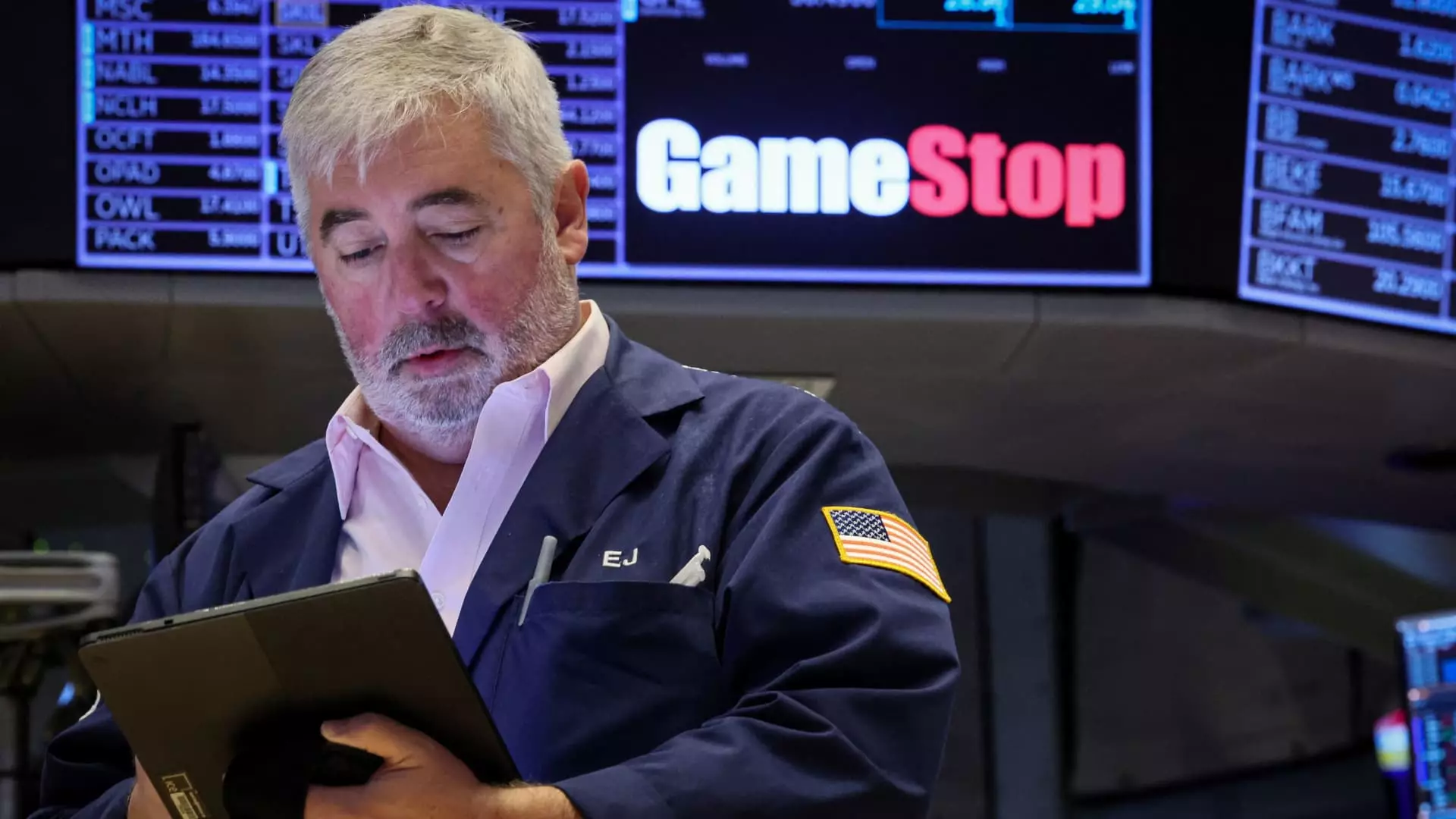GameStop, once celebrated as the darling of retail investors, now finds itself in a precarious position after revealing plans to raise substantial debt for the purpose of acquiring Bitcoin. Following a brief surge that saw shares rise nearly 12%, the stock plummeted over 13% as investors parsed the implications of this bold gambit. This volatile reaction is indicative of an underlying anxiety—can a meme stock, buoyed by speculative frenzy, navigate the turbulent waters of cryptocurrency investment?
Historical Context and Leadership Decisions
The announcement comes as GameStop’s board aligns itself more closely with the infamous strategy popularized by MicroStrategy, a company that has made headlines for its large-scale Bitcoin purchases. However, the circumstances surrounding GameStop are significantly different. MicroStrategy operates within a vastly different market profile and context—its value proposition intricately tied to the broader technology sector and enterprise solutions. In stark contrast, GameStop’s identity is tied to a dwindling retail sector, making its venture into cryptocurrency feel more like a desperation move than a calculated strategy.
The Dangers of Overvaluation
Analysts like Michael Pachter from Wedbush are right to express skepticism. GameStop’s staggering valuation—currently sitting at $12.7 billion—exceeds its projected cash flow post-debt issuance. With a market cap more than double its cash reserves, there is an inherent risk that as GameStop trades at over twice the value of its cash holdings, the anticipated premium from Bitcoin investments may evaporate. Such market conditions raise legitimate fears of a bubble bursting—can investors maintain confidence in a company whose stock price seems increasingly divorced from its financial fundamentals?
Implications of the Convertible Debt Strategy
The recent decision to pursue $1.3 billion through convertible senior notes comes with layers of complexity. Investors fortunate enough to secure these converts may be subjected to a zero-coupon bond structure that requires a leap of faith in GameStop’s future. The core uncertainty—will the “meme stock” phenomenon persist long enough for these investors to see a positive return—is a gamble that many may not feel comfortable taking. In an era where digital currencies introduce volatility, is this an appropriate strategy for a company already teetering on the edge?
The Bigger Picture: A Question of Corporate Identity
What remains most alarming is the identity crisis at play. By channeling corporate funds into Bitcoin, GameStop risks alienating its core customer base, which primarily comprises gamers and tech enthusiasts who traditionally view such maneuvers with skepticism. This shift risks redefining GameStop from a retailer to a speculative asset, raising the question—at what point does a company’s brand become irrevocably tied to its stock price, potentially sidelining its operational mission?
While GameStop’s board may regard their foray into cryptocurrency as an innovative leap, it raises profound questions about sustainability and identity. As the financial landscape evolves, so too must the strategies employed by legacy businesses. The stakes are high, and the reception from both investors and consumers will determine the future path of this once-beloved video game retailer.

